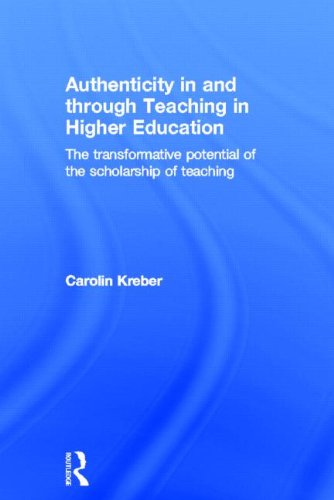

Most ebook files are in PDF format, so you can easily read them using various software such as Foxit Reader or directly on the Google Chrome browser.
Some ebook files are released by publishers in other formats such as .awz, .mobi, .epub, .fb2, etc. You may need to install specific software to read these formats on mobile/PC, such as Calibre.
Please read the tutorial at this link. https://ebooknice.com/page/post?id=faq
We offer FREE conversion to the popular formats you request; however, this may take some time. Therefore, right after payment, please email us, and we will try to provide the service as quickly as possible.
For some exceptional file formats or broken links (if any), please refrain from opening any disputes. Instead, email us first, and we will try to assist within a maximum of 6 hours.
EbookNice Team

Status:
Available5.0
18 reviewsWhat does it mean to be authentic? Why should it matter whether or not we become more authentic? How might authenticity inform and enhance the social practice of the scholarship of university teaching and, by implication, the learning and development of students?
Authenticity in and through Teaching introduces three distinct perspectives on authenticity, the existential, the critical and the communitarian, and shows what moving towards greater authenticity involves for teachers and students when viewed from each of these angles.
In developing the notion of ‘the scholarship of teaching as an authentic practice', this book draws on several complementary ideas from social philosophy to explore the nature of this practice and the conditions under which it might qualify as 'authentic'. Other concepts guiding the analysis include ‘virtue’, 'being', ‘communicative action’, 'power', ‘critical reflection’ and ‘transformation’.
Authenticity in and through Teaching also introduces a vision of the scholarship of teaching whose ultimate aim it is to serve the important interests of students. These important interests, it is argued, are the students’ own striving and development towards greater authenticity. Both teachers and students are thus implicated in a process of transformative learning, including objective and subjective reframing, redefinition and reconstruction, through critical reflection and critical self-reflection on assumptions. It is argued that, in important ways, this transformative process is intimately bound up with becoming more authentic.
Rather than being concerned principally with rendering research evidence of ‘what works’, the scholarship of teaching emerges as a social practice that is equally concerned with the questions surrounding the value, desirability and emancipatory potential of what we do in teaching. The scholarship of teaching, therefore, also engages with the bigger questions of social justice and equality in and through higher education.
The book combines Carolin Kreber's previous research on authenticity with earlier work on the scholarship of teaching, offering a provocative, fresh and timely perspective on the scholarship of university teaching and professional learning.